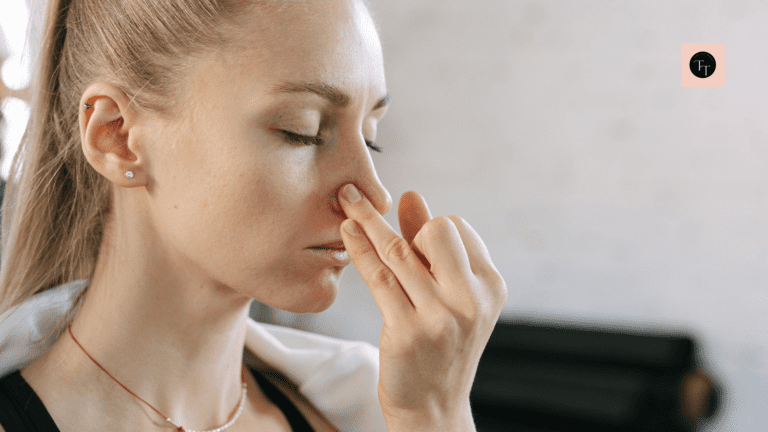Positive Thinking for Anxiety Reduction is a Powerful Tool!
It’s completely normal for senior women to experience anxiety, especially with the changes and challenges that come with this stage of life. However, embracing the power of positive thinking for anxiety reduction is an effective solution.
Inculcating positive thinking for anxiety reduction shifts your focus from worry to hope. You’re not alone in feeling anxious, especially at this stage of your life. Being gentle with yourself is important.
In addition to positive thinking for anxiety reduction, simple practices like deep breathing, meditation, and gentle physical activity, such as walking or yoga, can also help calm the mind.
Connecting with family, and friends, or joining a supportive community can also bring comfort. Remember, taking small, intentional steps toward relaxation can make a big difference in how you feel.
What is Anxiety?
Understanding anxiety is the first step to managing it.
The classic definition of anxiety is a feeling of worry, nervousness, or unease, typically about an imminent event or something with an uncertain outcome. Quite often, anxiety is not based on data or facts.
It is often characterized by physical symptoms such as a racing heart, sweating, and restlessness. Anxiety may include intrusive thoughts or excessive fear about situations that may not be inherently dangerous. Anxiety is a natural stress response but can become overwhelming, and even escalate into an anxiety disorder.
Some Common Symptoms
- Restlessness: Feeling on edge or unable to relax.
- Rapid Heartbeat: Your heart may race or pound.
- Trouble Sleeping: Difficulty falling or staying asleep.
Impact on Daily Life
Anxiety can make daily tasks hard and foster feelings of isolation and loneliness, especially among senior women living alone. It may affect your ability to enjoy hobbies, socialize, or even take proper care of yourself.
What is Positive Thinking?
“The mind is everything. What you think you become.” – Buddha
Positive thinking is a mental attitude in which you focus on the brighter side of life, expect favorable outcomes, and maintain an optimistic outlook.
It involves consciously reframing negative thoughts or situations, seeing challenges as opportunities for growth, and believing that good things will happen. Positive thinking encourages resilience, reduces stress & anxiety, and can improve overall well-being by promoting a hopeful and constructive mindset in the face of adversity.
Key Principles of Positive Thinking
- Optimism: Believing that good things will happen.
- Gratitude: Being thankful for what you have.
- Resilience: Bouncing back from setbacks.
- Mindfulness: Staying present and aware.
Benefits of Practicing Positive Thinking for Anxiety Reduction
Positive thinking is a powerful tool to mitigate anxiety. It helps shift your focus away from worries and toward what’s good in life. When you practice positive thinking, you train your mind to expect good things instead of dwelling on fears.
“Change your thoughts and you change your world.” – Norman Vincent Peale
Some specific benefits are:
Stress Reduction
Positive thoughts calm your mind and lower feelings of being overwhelmed by events beyond your control. This helps you feel more in control and less anxious about the future.
Positive thinking helps reduce stress. Instead of worries, your mind focuses on hope and better future outcomes. When you think positively, your body relaxes, and you feel calmer. This can lower your heart rate and reduce tension, promoting relaxation.
Mood Boost
Positive thinking also improves your mood. It’s easier to feel joy and gratitude when you look on the bright side. A positive mindset encourages hope. Anxious feelings start to ebb away and challenges seem less daunting.
Improved Physical Health
Positive thinking can even improve your health. Studies have shown that people who think positively have better heart health, stronger immune systems, and may even live longer.
Poor physical health is one of the main reasons for anxiety in old age. Feeling better physically will certainly reduce that anxiety.
Improved Mental Health
Moreover, positive thinking improves mental health by fostering a sense of well-being. It helps you feel more content and less anxious. By focusing on the good, you can reduce feelings of depression and increase your overall happiness.
Enhanced Coping Skills
Positive thinking enhances coping skills by making you more resilient. It helps you see challenges as opportunities rather than obstacles. This mindset allows you to bounce back from setbacks and handle life’s difficulties with grace and strength.
How to Practice Positive Thinking?
“Write it on your heart that every day is the best day in the year.” – Ralph Waldo Emerson
Here are 12 tips that can help you practice positive thinking. They will improve your life and help you manage anxiety a lot better!
- Start Each Day with Gratitude
Begin your day by thinking of a few things you’re thankful for. This simple practice of mindfulness gratitude shifts your focus away from worries and helps set a positive tone for the day. - Challenge Negative Thoughts
When anxious thoughts arise, pause and question them. Are they based on facts or fear? Replace these negative thoughts with more balanced and positive ones. - Use Positive Affirmations
Repeat encouraging statements to yourself, like “I can handle this” or “Everything will be okay.” These affirmations can help build a more optimistic mindset. - Surround Yourself with Positivity
Spend time with people who uplift you and avoid negative environments. Positive relationships can reduce stress and reinforce your sense of well-being. - Focus on Solutions, Not Problems
When faced with challenges, try to focus on finding solutions rather than dwelling on the problem itself. This shift in focus can reduce anxiety and help you feel more in control. - Practice Self-Compassion
Be kind to yourself. Accept that it’s okay to feel anxious sometimes, and don’t be too hard on yourself. Treat yourself with the same care and understanding you would offer a friend. - Limit Negative News
Too much exposure to bad news can heighten anxiety. Stay informed, but set limits on how much negative news you consume each day to maintain a positive outlook. - Visualize Positive Outcomes
Picture the best-case scenario instead of the worst. Visualizing positive outcomes can ease fears and make you feel more confident about the future. - Engage in Activities That Bring Joy
Doing things you love, like gardening, reading, or listening to music, can naturally boost your mood and encourage positive thoughts. - Celebrate Small Wins
Acknowledge and celebrate even the smallest accomplishments. This builds a sense of achievement and encourages more positive thinking. - Practice Mindfulness
Mindfulness helps you stay present in the moment instead of worrying about the future. By focusing on what’s happening right now, you can reduce anxious thoughts and maintain a positive outlook. - Incorporate Meditation into Your Routine
Meditation calms the mind and promotes inner peace. Regular meditation practice helps clear away negative thoughts and encourages a more positive, peaceful mindset.
In Conclusion
Feelings of anxiety may be normal, but there is no reason to let them make your life a living hell. Use the power of positive thinking for anxiety reduction to bring joy and tranquility to your day.
By focusing on the good, practicing gratitude, and surrounding yourself with positivity, you can reduce stress and enhance your overall well-being.
Embrace positive thinking, and you’ll find yourself feeling more relaxed, happy, and capable of handling whatever comes your way.






